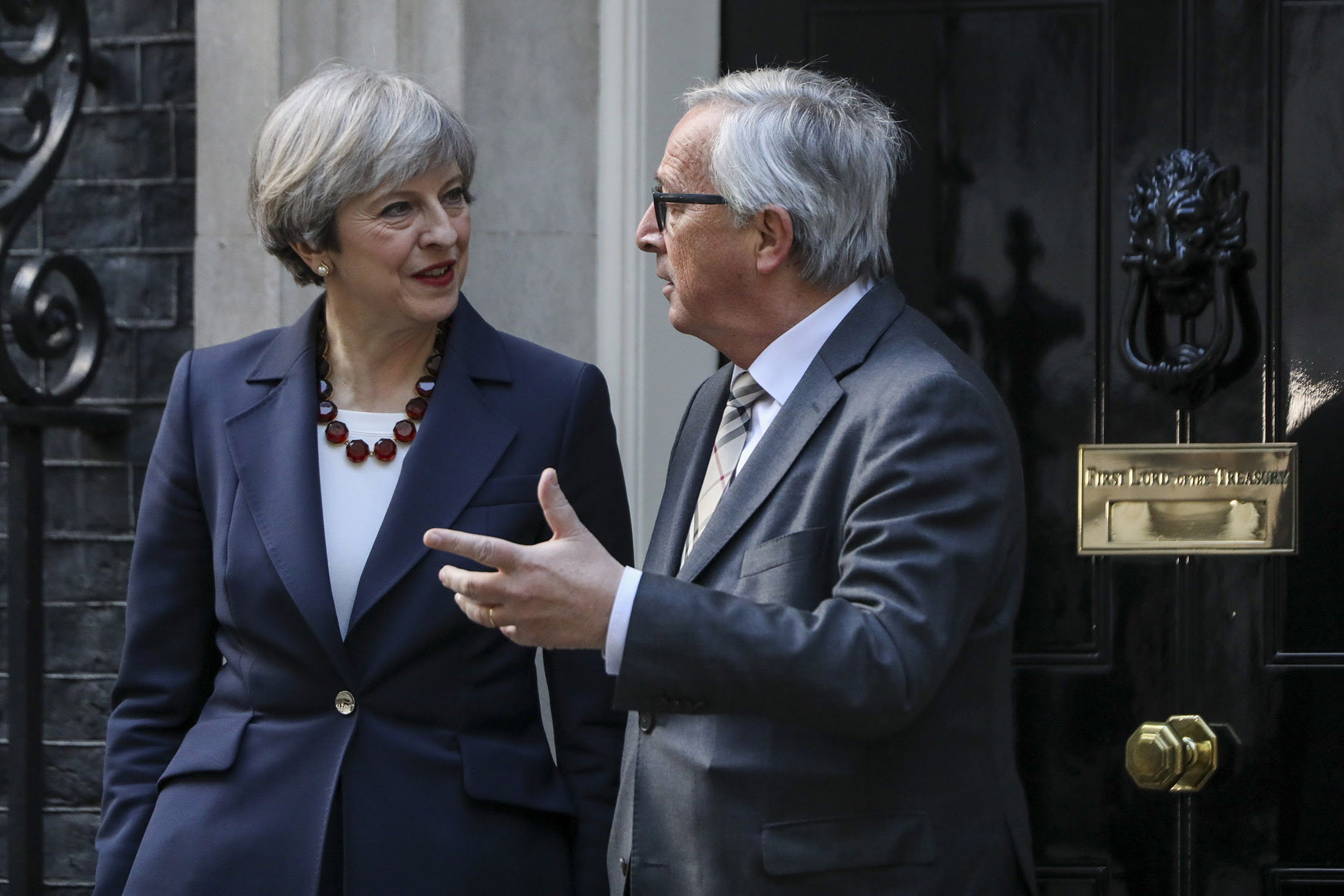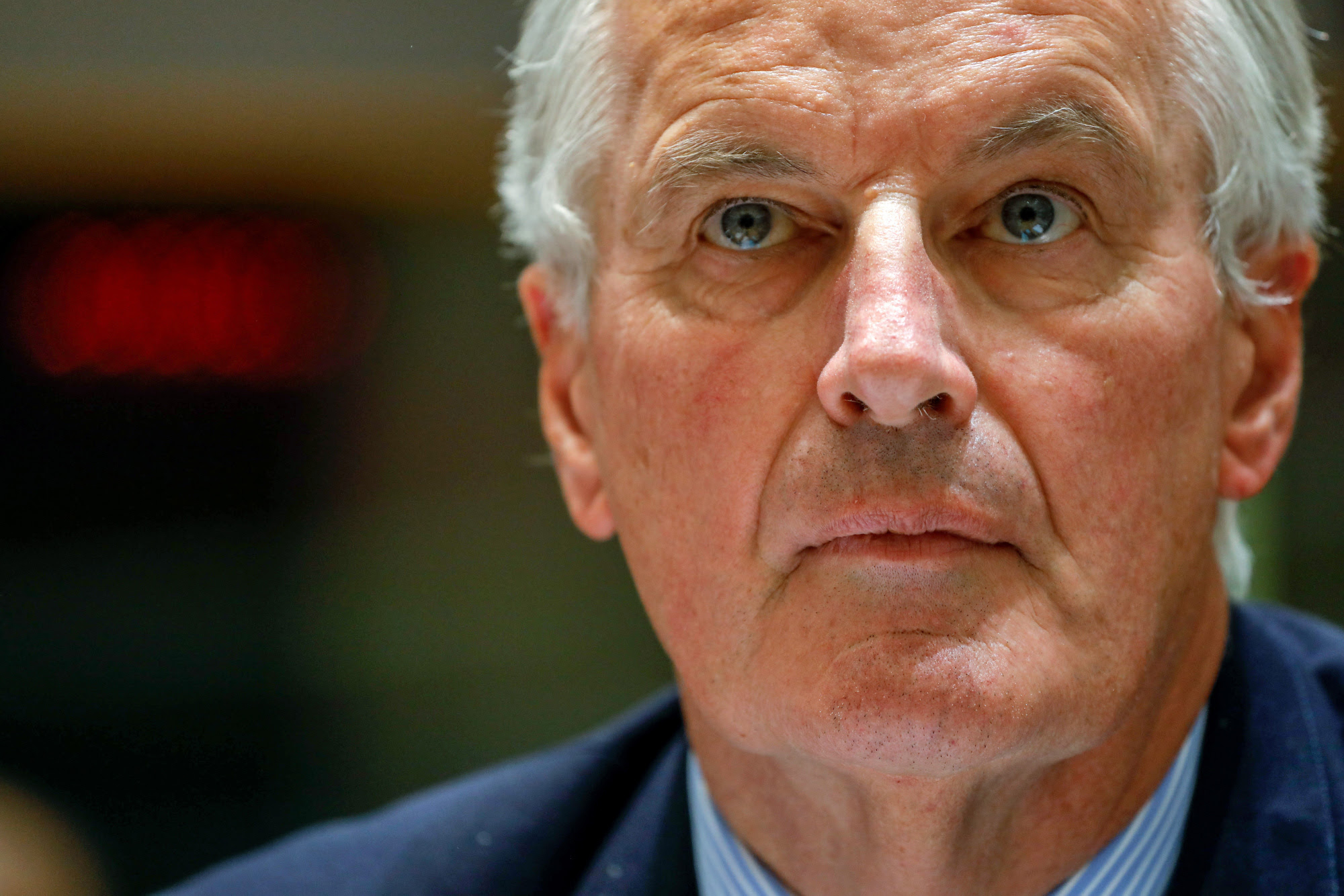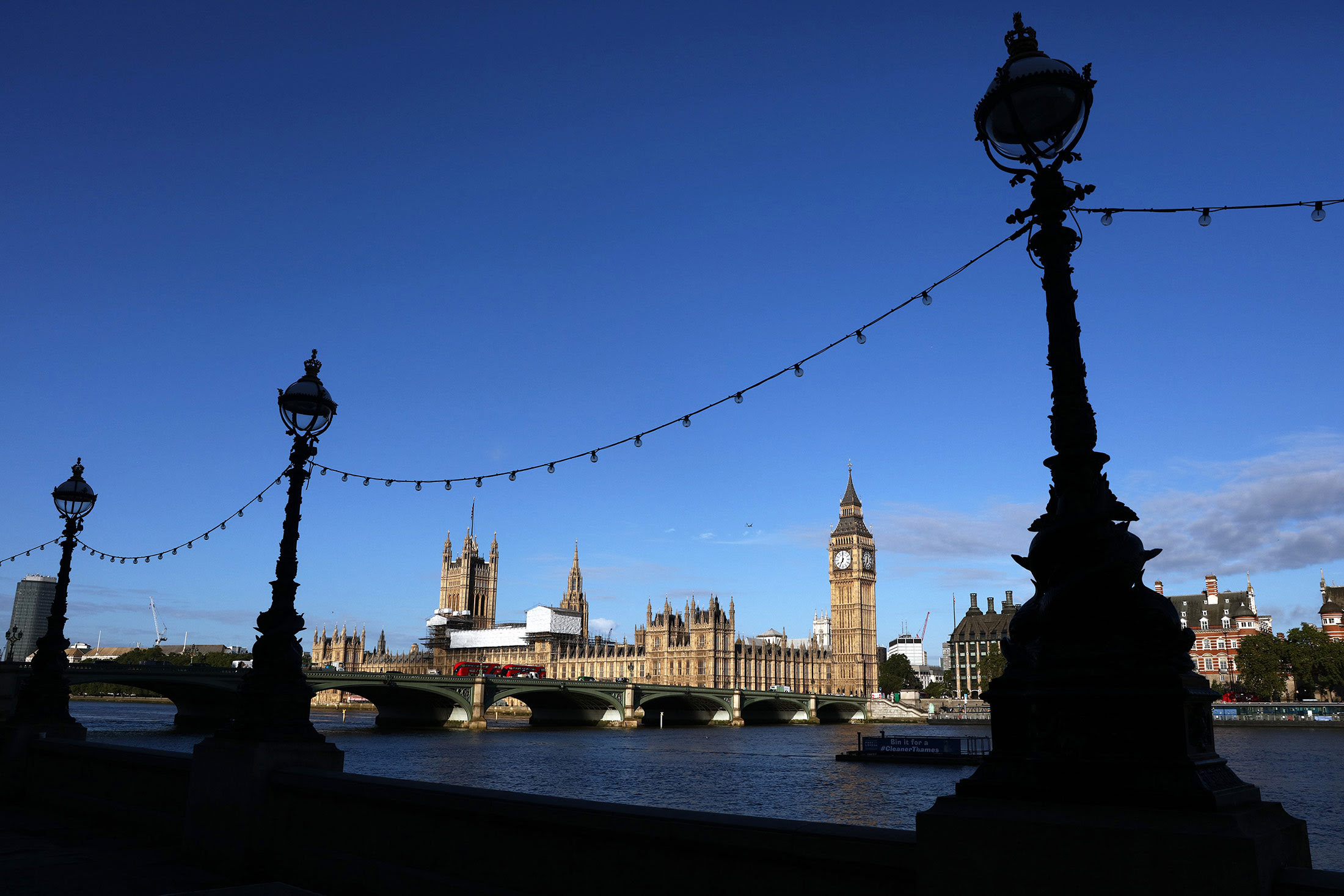Not today
Once flagged as the moment when a Brexit deal could start coming together, a lunch between Prime Minister Theresa May and European Commission President Jean-Claude Juncker in Brussels on Monday won’t be the breakthrough some hoped as recently as a week ago. U.K. officials are managing down expectations.
It’s not just that a deal on the Irish border remains elusive. The issue of what role the European Court of Justice can have post-Brexit has re-emerged as a major stumbling block after a weekend of intense back-and-forth, according to people on both sides. The ECJ has totemic importance for the Brexit backers in May’s Conservative Party, who see it as a symbol of lost sovereignty. On the EU side, it’s a possible deal-breaker as the veto-wielding European Parliament has made clear the court must have a role in protecting the rights of EU citizens living in the U.K. after Brexit.
May is ready to compromise, enraging some party members, but her offer may not go far enough for the EU. A senior British official said she has offered all her party will allow and a rejection at this stage from the European Union could torpedo talks, Tim Ross reports. The U.K. is blaming France and Germany for being obstructive.

The EU had set Monday as a deadline for May to come up with concessions on the three main divorce issues if she wants talks to move on to trade by year-end. The U.K. pushed back against the deadline, saying the crucial date is the EU council summit on Dec. 14, and U.K. officials in public and in private played down expectations.
“With plenty of discussions still to go, Monday will be an important staging post on the road to the crucial December council,” the British government said in a statement on late on Sunday.
Some progress appeared to have been made on the thorny issue of the border between the U.K.’s Northern Ireland and EU member Republic of Ireland late last week. Irish Foreign Minister Simon Coveney said Dublin wouldn’t ask “the impossible” of May and it wanted “parameters” rather than a final agreement. But the Irish Times said the chances of a deal on Monday were less than 50:50.
Ireland wants Britain to declare that it attaches the same importance to avoiding a policed border on the island after the split as it does to leaving the customs union and single market, the paper said. The U.K.’s decision to leave the single market and customs union is what makes a manned border on the island all but inevitable.
Brexit Latest
Second Referendum | Fifty percent of voters think there should be a second referendum on the final Brexit deal, a poll by Survation for the Mail on Sunday showed. The first poll since the outline agreement on the Brexit divorce bill also showed that 31 percent don’t think the U.K. should pay anything at all when it leaves. Thirty-five percent expect to be made worse off by Brexit, the Mailreported.
Neverendum? | Labour leader Jeremy Corbyn left the door open to a second referendum on Saturday, saying the party hasn’t made a decision about whether there should be one. Barry Gardiner, the trade spokesman, agreed, but had some more detail on Sunday about why the party thinks it’s a bad idea to commit to one:
“Let’s be absolutely upfront about this: the idea that you would have a second referendum, and that you would say that you’re going to have a second referendum like the Liberal Democrats have done would be to encourage the EU to give you the worst possible deal that there was.”
He also said a second referendum would open the way to a third, or fourth, plebiscite.
Drug Test Burden | Global drugmakers from Johnson & Johnson to AstraZeneca Plc warned that potential trade and regulatory hurdles will add to their costs after Brexit and harm the country’s reputation as a place to do research. Johnson & Johnson, in one example, estimated that it could face as many as 50,000 additional tests of its products annually at a cost of almost £1 million ($1.35 million) if there’s no mutual recognition of testing between the U.K. and the EU.
Bigger Move | Bank of America Corp., which plans to send about 300 people to Paris for a new regional base after Brexit, has been debating proposals from Chief Operating Officer Tom Montag’s subordinates for even bigger changes, according to people with knowledge of the talks.
Blair’s Crusade | Former Prime Minister Tony Blair is actively working to reverse Brexit, he told the BBC. “It is reversible,” he said. “It’s not done until it’s done.” Funding for the National Health Service, a major pledge of the Leave campaign, is an issue that could help voters change their mind, he said.
Copy-Paste Trade Deals | The government is falling behind with plans to replicate the EU’s network of free-trade agreements so that the U.K. can continue to enjoy them after Brexit, the Telegraphreports. The U.K. wants to copy about 40 trade accords and turn them into bilateral agreements so international commerce won’t be disrupted after the split.
Get Used to It | The U.K. economy’s “lukewarm” growth will continue for some time and may even weaken in coming years, according to the Confederation of British Industry. The CBI sees expansion of 1.5 percent next year and 1.3 percent in 2019, which would be the worst annual performance since 2009.
On the Markets | The pound slipped for a second day as hopes for a swift agreement faded. Sterling traded at $1.3457 early Monday. Even if there is a breakthrough this week, there’s not much room for the pound to rebound further as it’s already priced in, Bloomberg’s Charlotte Ryan reports.



Comentarios
Publicar un comentario